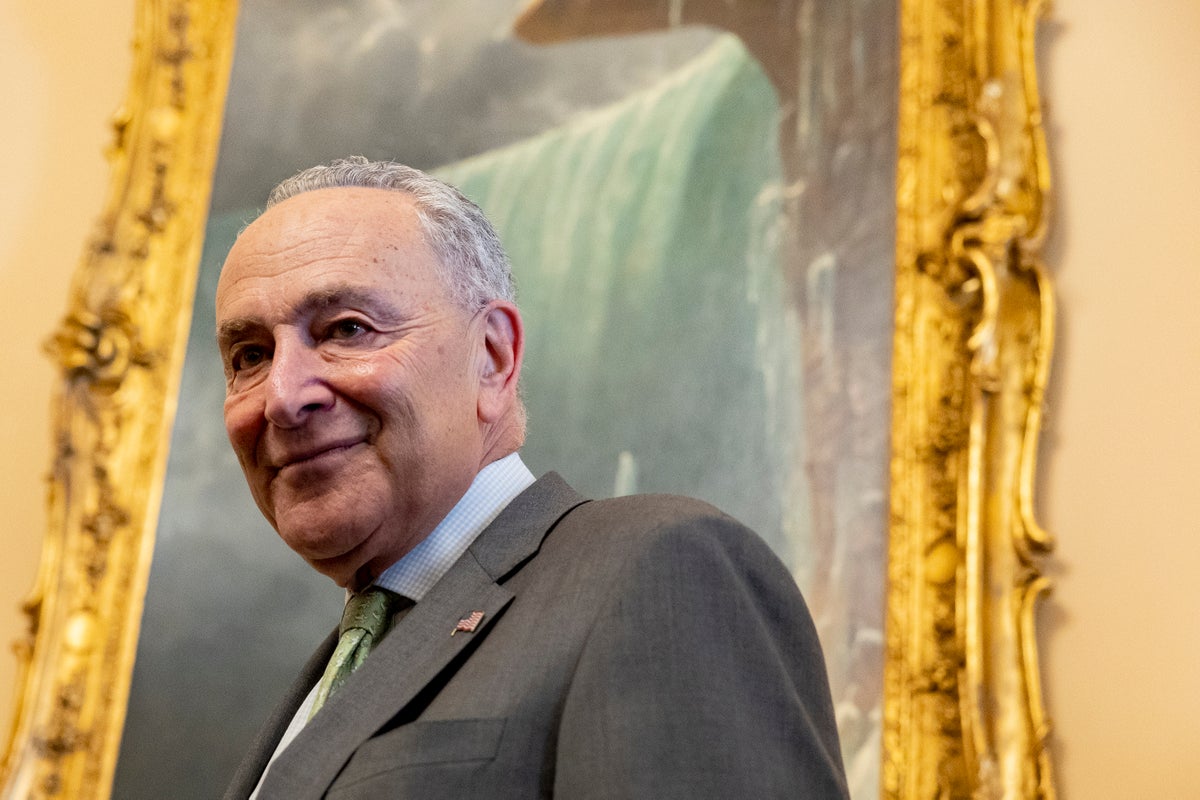
Senate Majority Leader Chuck Schumer announced that there would be a vote on a motion to proceed on the Inflation Reduction Act, Democrats’ climate and spending bill, on Saturday, teeing up the process for a vote on the legislation.
Mr Schumer on Thursday announced the vote despite the fact that the Senate Parliamentarian has yet to finish subjecting the legislation to the Byrd Bath process to determine whether any part of the Inflation Reduction Act constitutes “extraneous matter”.
Democrats, who have only 50 seats in their caucus, and hope to pass the legislation through a process called budget reconciliation, which would allow them to avoid a Republican filibuster to pass the legislation by a simple majority with Vice President Kamala Harris breaking the tie.
“We expect to vote on the motion to proceed to the reconciliation legislation on Saturday afternoon,” he said on the floor.
Mr Schumer shocked many in Washington when he announced last week that he and Senator Joe Manchin had come to an agreement on legislation that would focus on combating climate change, promote renewable energy, reduce prescription drug prices and continue subsidies for the Affordable Care Act.
But Democrats do not have a hard commitment from Senator Kyrsten Sinema from Arizona. Mr Schumer made the announcement after a vote finished while Mr Manchin and Ms Sinema, both conservative Democrats, were speaking together on the floor for an extended amount of time. At one point, Mr Manchin looked up and smiled at reporters in the Senate press gallery.
Currently, Senate Parliamentarian Elizabeth McDonough is scrutinizing parts of the legislation to determine which parts of the legislation can be included in reconciliation.
The reconciliation process also means that the Senate would have what is called a “vote-a-rama,” which allows for a series of rapid-fire votes on amendments that typically last no more than 10 minutes per amendment.
The announcement also comes after the Congressional Budget Office, a nonpartisan office within Congress that evaluates the costs of legislation, “would result in a net decrease in the deficit totaling $102 billion” between 2022 and 2031.
“We believe that we're going to meet the challenges the bird rule and our efforts to cut Medicare spending, cuts the costs of medicine are going to pay off,” Senate Finance Committee Chairman Ron Wyden told reporters on Thursday.







